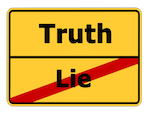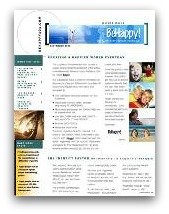Holiday Happiness (Part 5)
|
 |
I hope the strategies and tools presented in the first four parts of this Holiday Happiness series have helped you enjoy the holiday season as much as possible by:
- Putting the season in better perspective, looking at the big picture and helping you to be grateful for what you have;
- Reducing the stress a bit by creating a “Holiday Happiness Plan”which helped to scheduling your time better, include some rejuvenation time and maintain, or even start, an exercise program to clear your mind and combat the effects of the holiday “feasting”;
- Changing your rules about the holidays, using transformational vocabulary, and creating memorable “moments”;
- Considering those people who have it much more difficult than you and I to more fully appreciate how good we really have it and maybe creating a family tradition to establish positive expectations for the holidays.
If you have used some of these strategies, you should have felt a much greater sense of joy and a more positive overall outlook throughout this holiday season.
And even though the holiday season may be almost over, there are still some great ways to reduce stress as we wind down the year and perhaps be better prepared for next year's holiday season. So if you haven’t read the previous issues of the BeHappy101.com Holiday Happiness series, or you just need to refresh yourself on what they contain, it’s not too late to get something out of them. If that’s the case, just click here to start with Part 1 of the series.
Now, it’s time to start preparing for the year ahead. How was this year for you? Was it a difficult year? Were you as happy as you could have been throughout the year? Did you meet your goals for the yeat? Have you made a list of goals for next year and the next decade? What about some New Year’s resolutions?
Many people make resolutions during this time of year. And while I believe there is a big difference between New Year’s resolutions and annual goals, both can be important to help make the most of your year – if there is active follow-through and a strong commitment to achieving them.
Both of these topics – New Year’s resolutionsand annual goal setting – can be crucial to our happiness, as well as to our unhappiness, depending on whether the resolutions and goals are achieved or not.
For this part of the “Holiday Happiness” series, since it’s approaching a new year, we’re going to focus on resolutions rather than goals. [There is a full goal-setting article here at BeHappy101.com (check it out by clicking here). It could change your life – and make you much happier]
|
New Years Resolutions |
|
- Spend more time with family and friends
- Exercise (get in shape)
- Lose weight
- Be healthier
- Quit smoking
- Enjoy life more
- Quit drinking
- Get out of debt
- Learn something new
- Help others
- Be a volunteer
- Get organized
- Take a trip
- Try something new
- Get a better job
- Work on spiritual growth
- Reduce stress in life
- Reduce stress at work
- Save money
Are any of these on your list of New Year’s resolutions? Do you have other resolutions for the New Year?
In general, it’s good to have resolutions at the start of every year. Unfortunately, most resolutions are never achieved, and many people have actually stopped making New Year’s resolutions because of this fact.
Here are the main reasons I believe most resolutions are not achieved:
- They are not written down
- There are too many resolutions – and too many “big” ones
- They are not specific enough or well defined
- There is not a consious, compelling enough reason why they must be achieved
- There is no mechanism to review them regularly
- They are not shared with others
- They are not really commitments, but rather just hopes
- Some people have no outside support
In general, this list partially represents why New Years Resolutions are different from goals. Because goals should be written down. You should have relatively few goals. Each of your goals should have a compelling reason why they must be achieved, and so on. Goals require a commitment and a plan.
So, with all this in mind, here is an exercise to help you prioritize your resolutions, have a better chance of achieving them, and start you on your way to a better, happier year ahead:
- First, write down your New Year’s resolutions. You should have a maximum of about six. If you haven’t created your list of resolutions yet (or if you don’t usually “do” resolutions) – do it now by using any of the common ones from the list above ... or come up with some of your own.
- Once you’ve made your list of resolutions, put either a 1, 2, or 3 next to each one – representing the priority for each resolution as follows:
1 = highest priority or MUST accomplish
2 = medium priority or SHOULD accomplish
3 = lowest priority or “WOULD BE NICE” to accomplish
- Next, re-write all the ones with a “1” on a separate list (it's best to have a maximum of three). These may end up being goals for you if you proceed to doing some goal setting.
- Now (this part is a bit harder), next to each of these #1 priority resolutions, write down why you must achieve each of them. This is important to actually getting them done. There must be a compelling reason for you to accomplish each of these highest priority resolutions.
- Then (and here’s the hardest part), make a plan for how to achieve each of these resolutions. This plan should include (a) the actions you need to take to achieve the resolution by the end of next year as well as (b) various smaller targets at shorter intervals throughout the year to evaluate your progress (for example, monthly or bi-monthly). It also should include a weekly or bi-weekly review system (for example, I put an alarmed reminder every Monday morning in my smartphone to review my goals and resolutions).
- Once you’ve done all this, go tell someone your resolutions. It’s best for the person you tell to be someone you see or talk to regularly and who cares about you (like a friend or family member).
|
|
So keep the process going.
Make your list of New Years resolutions if you haven't already. Focus on the two or three #1 priority ones. Then, make sure to add the reasons why each of those top resolutions must be achieved.
Follow through with creating a plan for achieving each of them, dividing the plan into some regular "milestones" and evaluation points.
Tell someone about your resolutions for the year and if you need support, get it. The person you tell about your resolutions might be the one to support you. Then, make sure to take the next step and create your goals for the next year and beyond by going to the series on Effective Goal Setting listed in the "Related Articles" section below.
Every new year brings opportunity - and this coming year is no exception. And even though "life goes on", and circumstances can be difficult, at the very least there is the opportunity to resolve to make your life better and happier. That's what this website is all about.
So as my good friend, Neil Cantor, in Tampa says:
"May the best things that happened to you this year be the worst things that happen to you next year".
At the start of the New Year - in the final installment of this “Holiday Happiness” series - we will explore more ways to make the next year your happiest year ever (click here to go to "Part 6" now).
BeHappy! my friends … and HAPPY NEW YEAR!!
Related Articles:
Effective Goal SettingStress Management
Healthy Living
PLEASE CONSIDER...
If the information on this site helps you and you'd like to make a donation to BeHappy101.com (to help make others happy), please click on the button below to make a contribution. The amount you donate is entirely up to you. A portion will used to contribute to the happiness of others and is greatly appreciated. [WHY DONATE?] |



 From a health perspective, our world is in big trouble - and it's getting worse.
From a health perspective, our world is in big trouble - and it's getting worse.


 I am an entrepreneur, author, speaker, coach, doctor, husband, and father of two beautiful little girls.
I am an entrepreneur, author, speaker, coach, doctor, husband, and father of two beautiful little girls.


 I'm Jimmy, the founder and creator of this site and the whole BeHappy! system. My life's purpose is to be a positive, creative force for health and happiness and through this website, my books, coaching, and happiness-building programs, I intend to help as many people as possible live their happiest possible lives.
I'm Jimmy, the founder and creator of this site and the whole BeHappy! system. My life's purpose is to be a positive, creative force for health and happiness and through this website, my books, coaching, and happiness-building programs, I intend to help as many people as possible live their happiest possible lives.